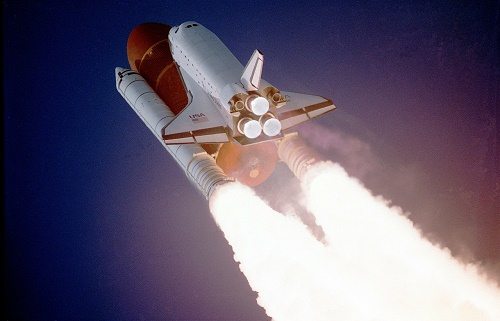IMAGE SOURCE: Pixabay, public domain
Overview
Aerospace engineers are the professionals who make things – airplanes, space shuttles, missiles and satellites, for example – fly. They design these objects and vehicles – and the technology used within them – to meet the engineering and physics demands necessary for a safe flight. Aerospace engineers review the technical and financial viability of designs and coordinate the manufacture of these systems, vehicles and objects. They test prototypes and finished products for quality control and solve problems that arise.
Aerospace engineers work in specialized roles, according to the United States Bureau of Labor Statistics (BLS). Some professionals, called aeronautical engineers, design aircraft like helicopters and planes. Others, astronautical engineers, work on spacecraft. These specialties differ based on whether the engineer must know the technology behind flying only within the earth’s atmosphere or both flying within and beyond the earth’s atmosphere. In addition, aerospace engineers of both types can further specialize in what type of technology they create, such as robotics, technical instruments, navigation technology and the structural design of a craft.
Education
Aerospace engineers of any specialty need a great deal of technical knowledge – knowledge they can only gain through a formal college education. Students who take classes in advanced mathematics, chemistry and physics during their high school education are best prepared for the rigorous work of a bachelor’s degree program in aerospace engineering. Throughout their college education, these students will study a variety of engineering principles and applications with regards to subjects such as:
- Acoustics
- Aerodynamics
- Celestial mechanics
- Flight mechanics
- Guidance and control systems
- Propulsion
- Stability and control
- Structures
- Thermodynamics
Students in programs accredited by the Accreditation Board for Engineering and Technology (ABET) will gain this knowledge and hands-on experience through a combination of classroom, laboratory and field experiences. Often, students gain additional real-world work experience through internships or cooperative programs offered by their schools.
While a bachelor’s degree is sufficient education for many aerospace engineer positions, students who intend to advance to careers in research and development or to work at an academic institution like a university should pursue an advanced degree. Some students earn both their undergraduate and graduate degrees through accelerated five-year programs. Once candidates have graduated from college and gained enough years of relevant work experience, they typically seek the Professional Engineer license, which requires passing scores on both the Fundamentals of Engineering (FE) and Professional Engineering (PE) exams.
Employment
Aerospace engineers enjoy high salaries, with a median annual wage of $103,720, the BLS reported. The 12 percent of aerospace engineers who work for the federal government have the highest earning potential. The median wage in this industry specifically is $110,860. Even entry-level aerospace engineers earn $71,859 per year on average, according to the BLS. Job growth in this profession is expected to be slower than the average for all occupations. However, candidates with experience in modeling, robotics, simulation, fluid dynamics software and collaborative engineering are expected to have the best job prospects, the BLS reported.
Conclusion
Designing craft for flight as aerospace engineers do, either inside the earth’s atmosphere or in space, requires extensive skills and knowledge. The most successful aerospace engineers have excellent mathematics, analytical and critical thinking abilities – not to mention a keen business sense.
Related Resources:




